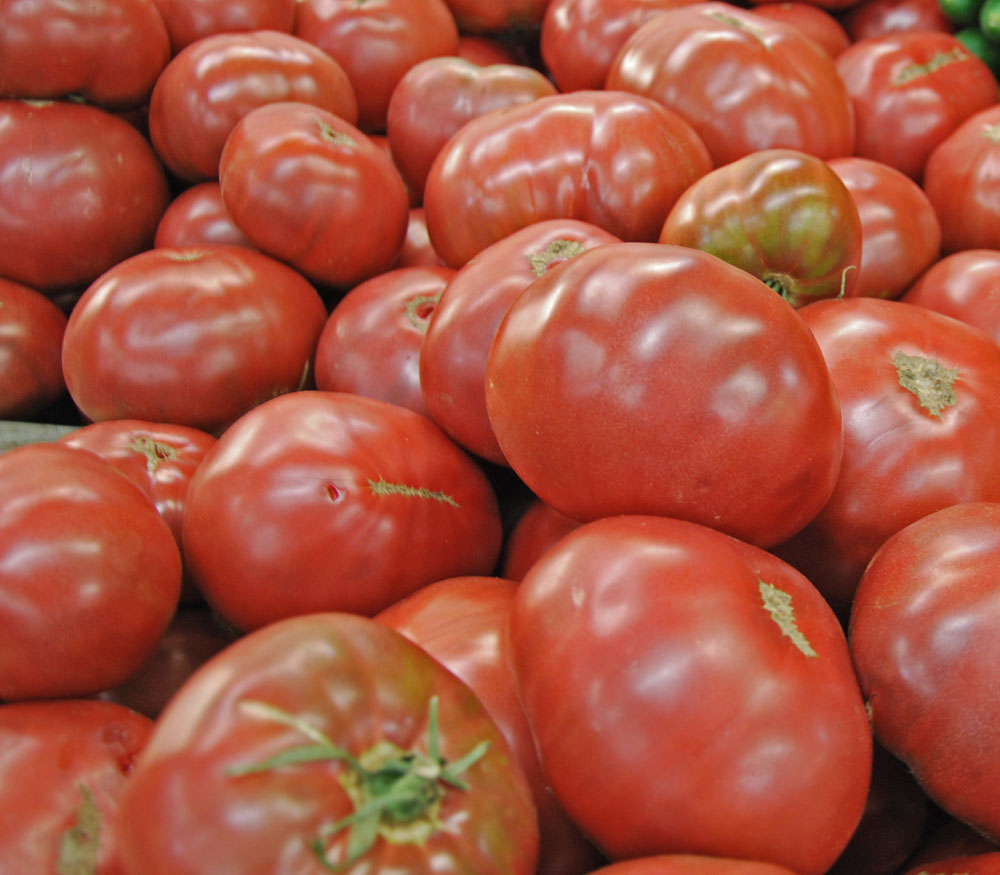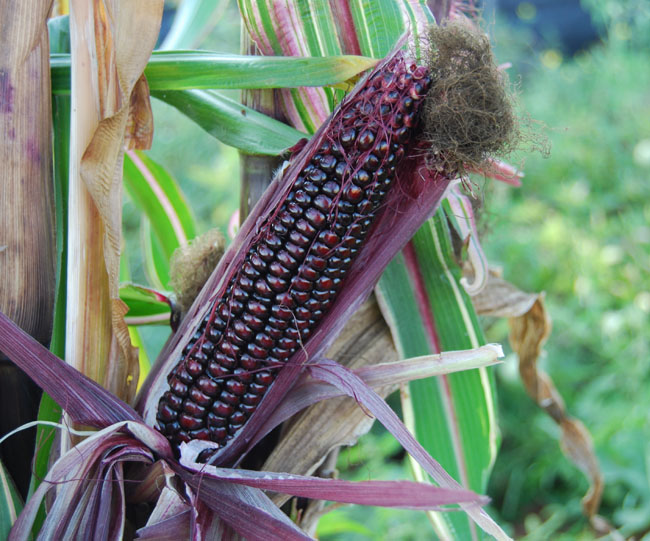- Home »
- Information »
- Heirloom Seeds
What is an heirloom seed?
The awareness of heirloom seeds and plants has become bigger than ever in recent years, but the term "heirloom" still causes confusion among many gardeners. While definitions vary, most sources agree on several fundamental factors that make a seed variety an heirloom. The exact definition is still up for considerable debate, but for most gardeners, a few simple guidelines will work fine.
Age
Heirloom varieties are always several decades old, usually dating back at least 50 years or more. Some sources mark the end of WWII as the cutoff for the creation of heirloom varieties as hybrid varieties began to appear several years later.
Open pollinated
To be an heirloom seed, the variety must be open pollinated. This means that seeds can be planted, the resulting plants allowed to mature and seeds collected to be replanted the next season. The collected seeds would be expected to "breed true" with regards to the traits of the parent plant.  Once the seeds are planted and replanted, passed down from generation to generation through standard breeding methods and retain their original traits, the variety can be considered an heirloom. Certain tree fruits such as the apple can be propagated through non-seed methods and are still considered "heirlooms" if they have been passed down for several generations. Open pollination by definition will occasionally produce mutants or in certain easy-crossing varieties like melons, produce new varieties. For these reasons, to keep an heirloom seed strain pure, it is important to select seeds from plants producing traits that are in line with the original variety. To use an example, if a yellow brandywine tomato accidentally crosses with a small red cherry tomato, resulting in fruits that are medium sized and red, that daughter plant would no longer be considered the same variety as either of its parents.
Once the seeds are planted and replanted, passed down from generation to generation through standard breeding methods and retain their original traits, the variety can be considered an heirloom. Certain tree fruits such as the apple can be propagated through non-seed methods and are still considered "heirlooms" if they have been passed down for several generations. Open pollination by definition will occasionally produce mutants or in certain easy-crossing varieties like melons, produce new varieties. For these reasons, to keep an heirloom seed strain pure, it is important to select seeds from plants producing traits that are in line with the original variety. To use an example, if a yellow brandywine tomato accidentally crosses with a small red cherry tomato, resulting in fruits that are medium sized and red, that daughter plant would no longer be considered the same variety as either of its parents.
Parentage
This area has a lot debate, with some sources arguing a variety can only be an heirloom if it was passed down amongst families or communities. In this line of thinking, an old seed variety that was once a commercial variety could not be an heirloom. This can be confusing though, because a number of varieties have either an unclear origin, or the variety is an open pollinated type that was once commercialized. Whether parentage is of importance would be up to you.
Are open pollinated seeds heirlooms?
For the average gardener, the terms "heirloom" and "open pollinated" can seem interchangeable. All heirloom varieties are open pollinated but not all open pollinated varieties are heirlooms. Modern open pollinated varieties essentially contain most of the same traits heirloom varieties do except they are of more recent origin. For practical planting purposes, heirlooms and modern open pollinated varieties can be treated much the same way. In both cases one can save seeds for replanting the following season and expect a relatively true breeding line. If you are looking for vareities that are naturally produced, breed true and seeds can be saved then both open pollinated and heirloom varieties will work for you.

OK, so then what is a hybrid seed?
In contrast to heirloom and open pollinated varieties, the last several decades has seen a proliferation of hybrid vegetable varieties. These are specific, artificial crosses between known varieties to produce the "hybrid" or F1 line. While modern hybrid varieties have introduced a number of potentially useful traits such as pest resistance, because of their specific parental cross, seeds cannot be saved and be expected to produce a true breeding line. The technical reason for this would result in an explanation of genetics, but the genes from the cross undergo segregation to the daughter (F2) generation. If you save seeds from a hybrid variety for replanting, you will likely find the progeny plants producing a variety of traits that were not seen in the original. Hybrids are not true breeding strains in so far as seeds cannot be saved to reliably reproduce the parent. GMO (genetically modified organism) seeds are also in the news a lot lately. While GMO seeds are often hybrids, most hybrids are not GMO. In general, GMO seeds tend to be limited to crop seeds such as corns, wheat, etc.
No, we do not carry any GMO (genetically modified organism) seeds. While the term "GMO" is widespread in popular media, creating the feeling there are GMO seeds everywhere (there are for commercial crop plants!), for the average home gardener GMO seeds are usually few and far between. Almost the entirety of GMO plants are limited to just a few crops: alfalfa, corn, soybeans, cotton, wheat, sugar beets, a few zucchini and squash, plus a handful of varieties of papaya. Common home garden crops such as tomatoes, peppers, lettuce, carrots, etc. are (as of today) unaffected by GMO varieties as there are no currently available commercial varieties (there was once a GMO tomato, but it has since been withdrawn from the marketplace). And, it bears repeating that we do not carry any known GMO varieties.
All of our vegetable seeds are listed by the type of vegetable, e.g. tomato, pepper, corn, etc. The vast majority of our seeds are open pollinated and many of the open pollinated varieties are heirlooms. We carry a select few hybrid seeds, e.g. Sun Gold Tomato, and those are listed as 'hybrid' or 'F1 hybrid'. If the variety does not list 'hybrid' in its description, which most do not, then the variety is open pollinated.
Heirlooms have become increasingly popular, not just for their connection to the past, but for their outstanding flavor and traits that are not seen in many commercially available hybrids. The wealth of genetic resources contained in all of the heirloom varieties around the world is breathtaking! Heirlooms have given us purple tomatoes, yellow carrots, brown cucumbers, zany colored squashes and pumpkins, plus countless other unique traits you won't find in the produce at your local grocery store. In addition, the flavor array from heirloom varieties has opened a world of connoisseurs, from tomato tasting's to cookbooks and much more! Heirlooms also offer specific traits to satisfy the pickiest eater or grower. Do you want a tomato that has a splash of pineapple? A lettuce covered in beautiful burgundy red stripes? A melon shaped like a banana? Or even a pepper sweeter than any blocky bell from the market? You might want to try an heirloom!
